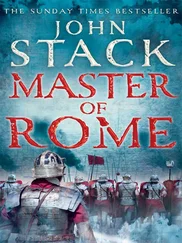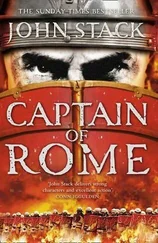She moved up and kissed him full on the lips, allowing the contact to linger. The sound of approaching footsteps caused Hadria to suddenly break contact. The guard commander was returning.
‘Please take care, Atticus…Take care until we meet again,’ she breathed, her voice cracking with the fear she felt for the man she loved. Atticus embraced her, allowing her to draw strength from him and the intensity of their shared love before she drew away from him again. She turned quickly and rushed towards the door. For a brief second her body was outlined in the dim light from the hallway beyond, and she turned towards him one last time, whispering his name as she did so. Then she was gone.
The activity in the camp was as frenzied as before when Atticus rode through the main gate an hour before noon. His pass was checked one last time and then confiscated to avoid it being used again. Atticus willingly relinquished the document, having no further use for it. He knew he would not get another chance to leave the camp on such an extended leave.
Atticus checked the course of the sun in the clear blue sky. He had more than enough time for a swim and a bite to eat aboard the Aquila before his meeting with the consul. He hastened his step and crested the dune separating the camp from the beach. The sight before him caused him to stop. Of the fifty galleys that had been moored off the beach the day before, only a dozen or so remained, and they were in the process of getting under way, their bows pointed south towards the port of Ostia. It was not their progress that drew his gaze, however, it was the twenty huge transport ships that had taken the galleys’ place off the beach. They were ganged together in four groups, each one congregated around one of the four wooden piers that stretched far enough out to sea to ensure the barges did not become beached as they unloaded their cargo of humanity. Atticus stopped a soldier who was hurrying past him.
‘What legion are they, soldier?’
‘They are the Fifth, of Liguria,’ the young legionary said before running off again.
Already the beach just above the breakwater was crowded with the disciplined formations of the newly arrived legion. Every few moments a fully formed maniple would begin the march up the beach between the framed workings of the shipbuilders. Like the Fourth, which was already encamped in Fiumicino, the Fifth was a garrison legion and therefore consisted of roughly five thousand soldiers in forty maniples. These legions lacked the additional numbers of auxiliaries and mounted cavalry that would swell their size to ten thousand, the complement of a campaigning legion such as those in Sicily. Judging from their regimented ranks and the fact that they were part of the Republic’s northern defence, Atticus suspected they were a tough, experienced unit.
Atticus walked down the beach towards the southernmost pier where the Aquila had been moored the evening before. Beyond the two barges now moored on the pier he could see his own galley anchored two hundred yards offshore, its position well removed from the cumbersome transports. Atticus walked away from the pier to an isolated spot on the beach and waved to the galley. His wave was returned by Lucius on the aft-deck, who immediately recognized the captain. Atticus watched as a skiff was launched. He pointed towards the end of the pier, indicating where he wanted to be picked up, and then began walking the short distance back to the barges.
The pier was eight feet wide and stretched for one hundred yards into the sea from the high-tide mark of the beach. Atticus walked down the right-hand side of the pier, the stern-faced soldiers marching three abreast coming past him on the other side. As Atticus drew level with the centre of the barge, he paused to look up onto the main deck, his progress temporarily blocked by the unloading of a large crate hanging precariously from a crane.
The rail at the side of the low deck had been removed to allow for the six-foot-wide, twelve-foot-long gangplank to be lowered onto the pier. These massive gangplanks were ubiquitous on all trading barges, their width and sturdiness allowing for everything from livestock to gangs of slaves to be unloaded quickly. The gangplanks normally lay on the main deck and were simply thrown over the side of the ship when in port, their momentum checked at the last moment by guide ropes attached to the deck end. It was a simple yet skilful manoeuvre requiring split-second timing and a firm hand. One slip and the gangplank would fall completely over the side of the barge, an embarrassment often witnessed by Atticus in the busy ports of the Republic.
The legionaries waited patiently at the back of the main deck as the crane, its base attached to the main mast, swung out over the lowered gangplank. A shouted command ordered the gang of sailors controlling it to ease it away, and they slowly lowered the lifting arm until the crate hung over the pier at the foot of the gangplank. A second team of sailors holding the rope attached to the crate fed the line through a pulley at the top of the crane and the cargo dropped gently onto the pier. Men clambered over the crate to untie it and the crane was hoisted away again in search of the next crate. Atticus stepped around the knot of men manhandling the cargo and walked on towards the end of the pier.
Atticus spied the small skiff making its way towards him and he waved a greeting. A sudden thought arrested him and he spun around to look back at the barge. The legionaries had recommenced their disembarkation, their disciplined ranks forming at the head of the gangplank before marching down its twelve-foot length, three abreast. The formation wheeled right at the foot of the gangplank and continued on down the pier towards the beach. Within a minute an entire maniple, twenty rows of three men abreast, had disembarked.
Atticus was dumbstruck by the simplicity of the idea forming in his head. His sceptical side argued against the basic concept, but his logical mind overcame the doubts to once more re-establish the solution firmly in his thoughts. Atticus began to run, his flight drawing puzzled looks from the sailors in the skiff. He passed the legionaries marching along the pier and continued on to the beach. He stopped for a second to get his bearings, his eyes searching the construction site before him, but Lentulus, the master shipbuilder, was nowhere to be seen. Atticus started running again, this time up the beach towards the camp. As he ran his face took on a determined expression, the idea turning over and over in his head.
CHAPTER FOURTEEN
Scipio retched again at the overpowering stench surrounding him in the pitch-black recesses of the bottom deck of the Carthaginian galley. The cramped space of the hold was in marked contrast to where Scipio had spent the first two weeks of his captivity, locked in the fortified garrison at Lipara. From the window of his cell he had been able to look out over the harbour and watch the loss of his Classis Romanus , not through destruction but through conversion and amalgamation into the Carthaginian fleet. Sixteen of his original twenty galleys had survived the ambush and their number had swelled the ranks of the enemy in a bitter twist that shamed the onceproud consul. At the end of the two weeks the Carthaginians had made ready to sail again from Lipara. It was then that Scipio had been dragged from his cell and without explanation thrown into the hold where he now languished.
His stomach cramped as he doubled over, its contents long lost, and he fought to catch his breath. The claustrophobic nightmare of the confined space filled his consciousness again and threatened to overwhelm him. He dug deep into his courage to fight the rising panic but found his nerve failing. His legs ached in the confined space, the five-foot headroom forcing him to alternate between squatting and crouching in an effort to keep off the filthy, cockroach- and faeces-infested deck. A bulkhead separated him from the slave quarters and he could hear their moans and wretched coughing through the timbers. It was a sound that chilled his blood.
Читать дальше
Конец ознакомительного отрывка
Купить книгу











